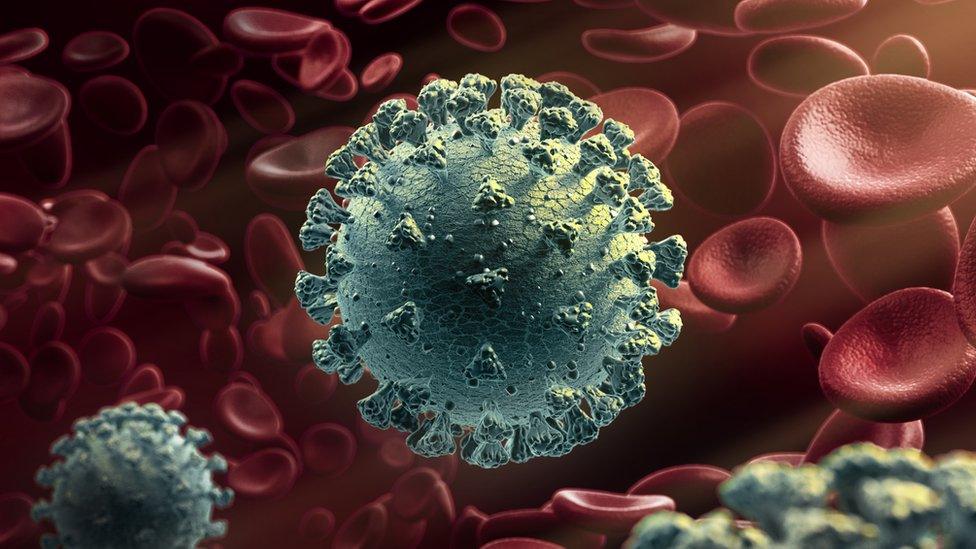Covid in Scotland: Scottish level four rules 'may be strengthened'
- Published
- comments
Covid in Scotland: Advice moving to 'stay local, stay at home'
The top level of Covid-19 restrictions in Scotland may need to be strengthened further to contain the new strain of the virus, Nicola Sturgeon has warned.
The whole Scottish mainland is to move into level four from Boxing Day due to concerns about the new Covid variant.
The first minister said this was "essential" to protect the NHS and contain the faster-spreading virus.
And she said consideration must be given to whether the current level four rules were sufficient to do the job.
The government is to narrow the definition of "essential retail" - forcing homeware shops and garden centres to close - while guidance urging people to stay at home as much as possible may be put down in law.
Ms Sturgeon told MSPs that the current rate of new cases in Scotland was currently "significantly lower" than in other parts of the UK, but said the new variant of Covid-19 necessitated "real action" and "significant countermeasures".
The move to level four will see blanket travel restrictions in place between every council area in Scotland, with people barred from leaving their local area other than for essential reasons.
Hospitality venues will have to close, as will "non-essential" shops - with this definition being expanded to include even more premises.
Schools are to stay closed until 11 January, and most pupils will learn from home until at least 18 January - a situation Ms Sturgeon said would remain "under review".
The government is also examining whether the current level four measures will be enough to contain the new strain of the virus, which studies suggest can spread up to 70% faster than previous variants.
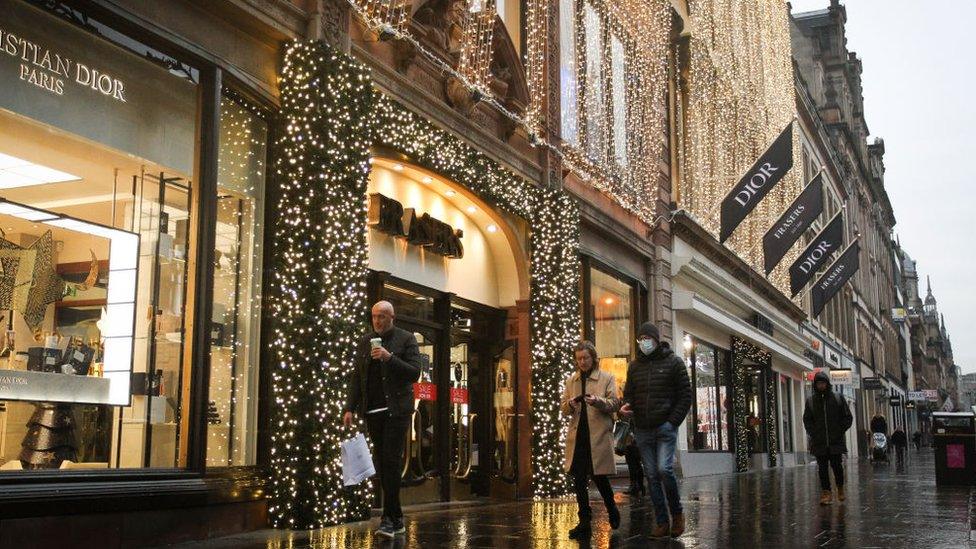
Ms Sturgeon said a decision on whether this was necessary would be taken as more evidence about the new variant became available.
She said: "The current level four restrictions are not as stringent as the March lockdown, and up to now that has been a good thing.
"However it seems we may be facing a virus that spreads much faster now than in March, so we must consider whether the current level four restrictions are sufficient to suppress it in the weeks ahead."
The first minister said failing to take strong action quickly would see "another period of exponential growth" of the virus in the new year.
She said: "This is preventative action, because we see a train coming rapidly down the track at us and we're trying to get out of its way."
Blended learning
Scottish Conservative group leader Ruth Davidson said "most people understand" the need for tighter curbs, but said "in return they are demanding as much clarity from government as conceivably possible".
She said people were tired of "supposedly time-limited firebreaks stretching into months", asking whether parents should start "preparing now for a long haul of blended learning at home".
Ms Sturgeon hinted that tighter measures might be introduced in a bid to see schools open again full time, saying that "continues to be a priority" for the government.
She said the intention was to reopen schools fully on 18 January "if it is at all possible", adding: "If that means the rest of us living under more severe restrictions we will not shy away from that."
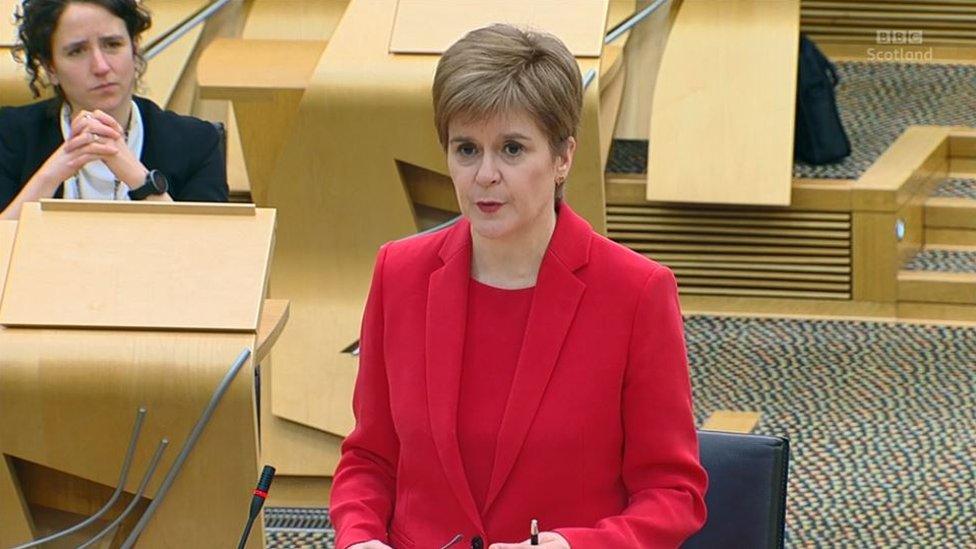
Scottish Green co-leader Patrick Harvie also asked about schools, calling for "widespread routine testing" for teachers and expanded use of remote learning.
Meanwhile Scottish Labour leader Richard Leonard said the government had "abandoned" the levels system for a blanket lockdown, saying that "three weeks does not sound like three weeks, but considerably longer".
He said if the new strain of the virus was 70% more transmissible, the government should commit to a 70% increase in business support and virus testing and a similar acceleration of the vaccination programme.
Ms Sturgeon said she would seek to get back to the local levels system "as quickly as possible", adding that the vaccine was being rolled out as quickly as possible and there were no "simple equations" around boosting support.
Lib Dem leader Willie Rennie voiced concerns about NHS boards cancelling "ever greater numbers" of non-urgent procedures, with the first minister saying the return of elective treatment relied on suppressing the virus as far as possible.

VACCINE: When will Scots get it?
NUMBERS: Five key figures to watch out for
LOCKDOWN: Six months that changed our lives

- Published4 January 2021
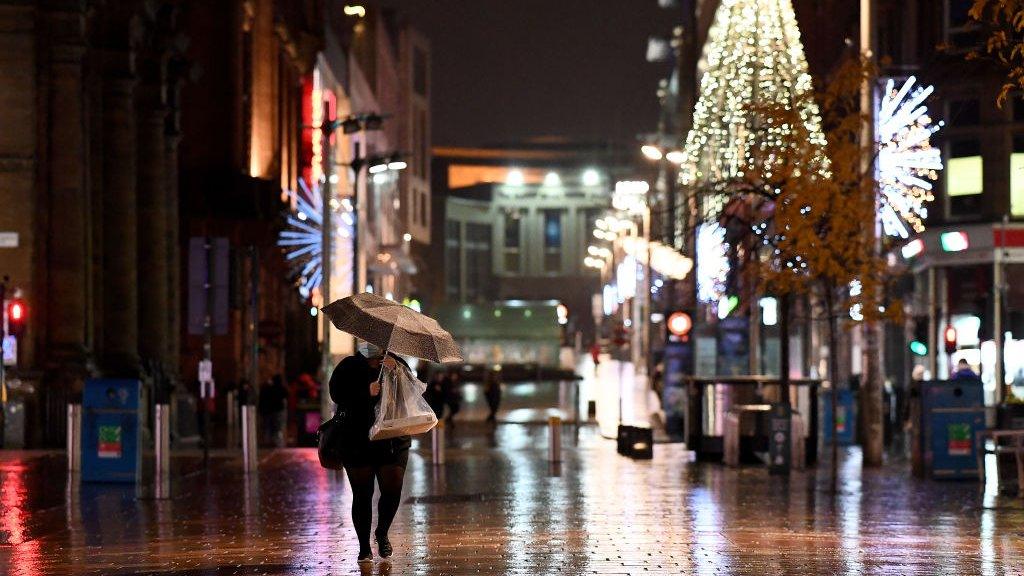
- Published20 December 2020
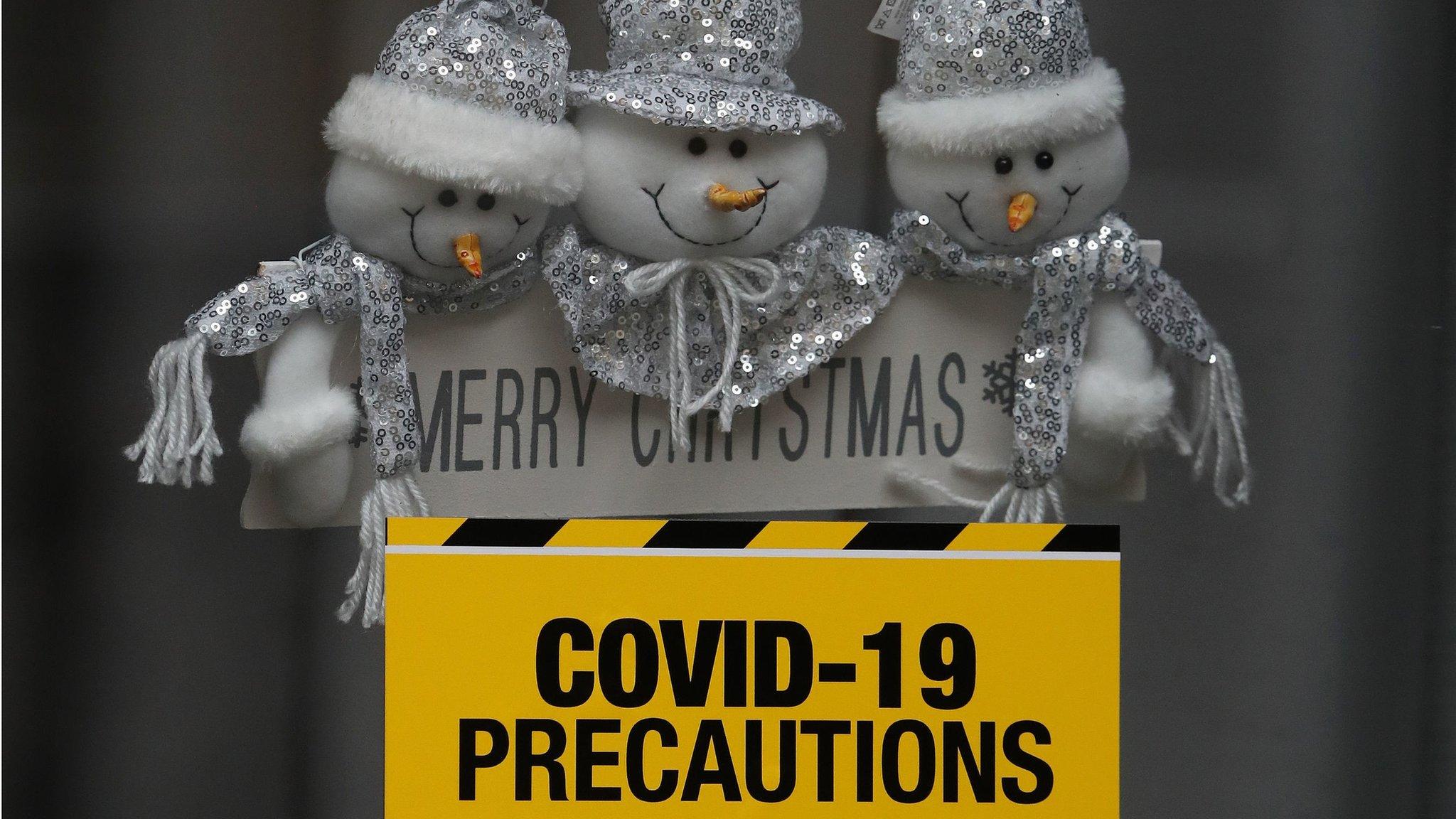
- Published20 December 2020
